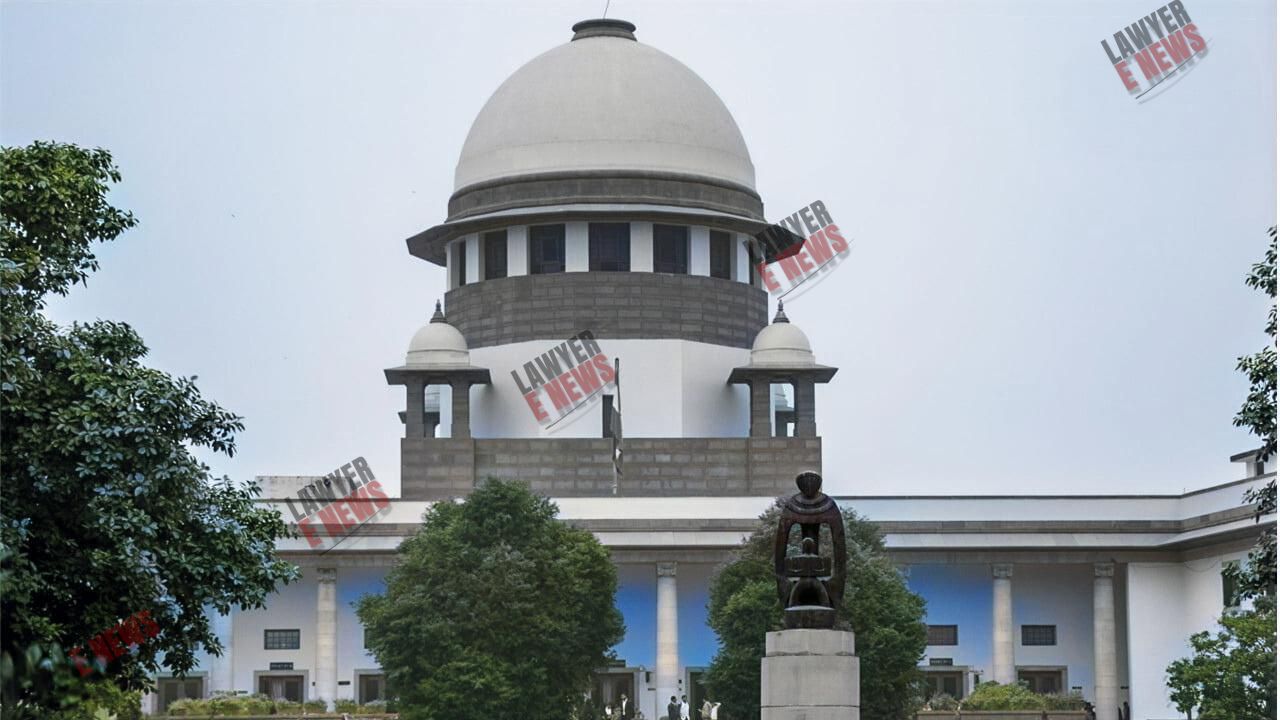-
by sayum
16 February 2026 7:15 AM



Dignity Cannot Be Denied – Women in Void Marriages Must Not Be Subjected to Derogatory Labels - Supreme Court of India held that a spouse of a void marriage is entitled to claim permanent alimony and maintenance under Section 25 of the Hindu Marriage Act, 1955, provided the claim is justified based on financial necessity, conduct, and fairness. A three-judge Bench comprising Justices Abhay S. Oka, Ahsanuddin Amanullah, and Augustine George Masih ruled that the term "any decree" in Section 25 includes decrees of nullity under Section 11, thereby entitling spouses in void marriages to financial relief.
The Court also clarified that interim maintenance under Section 24 can be granted even in proceedings where the validity of marriage is being challenged. "Even if a marriage is eventually declared void, a spouse cannot be left without financial support during the pendency of proceedings," the Court stated.
This decision settles conflicting judgments from previous cases, particularly Chand Dhawan v. Jawaharlal Dhawan, (1993) 3 SCC 406, which supported maintenance claims in void marriages, and Yamunabai Anantrao Adhav v. Anantrao Shivram Adhav, (1988) 1 SCC 530, which denied such claims.
Broad Interpretation of Section 25: "Any Decree" Includes Decrees of Nullity
The Court rejected the argument that maintenance should be restricted to legally recognized marriages. "Section 25 applies at the time of passing any decree under the Hindu Marriage Act. It is not limited to cases of divorce but extends to cases where the marriage is declared void," the Bench observed.
It held that excluding spouses of void marriages from maintenance would contradict the objective of the Hindu Marriage Act, which seeks to provide financial security to dependent spouses. "A decree under Section 11 declaring a marriage void still affects the status of parties. Financial dependence does not vanish merely because the marriage was void from inception," the judgment emphasized
Interim Maintenance Under Section 24 Applies Even if Marriage is Later Declared Void
The Court also ruled that interim maintenance under Section 24 can be granted even when a marriage is challenged as void. "The right to maintenance during pendency of proceedings cannot be denied merely because the final outcome may result in nullity," it stated.
The judgment emphasized judicial discretion in awarding such relief, noting that courts must consider the conduct of the parties, financial necessity, and the facts of each case before granting maintenance.
Supreme Court Criticizes Misogynistic Language in Previous Judgments
In a strong rebuke to previous judgments, the Court condemned the use of derogatory terms like "illegitimate wife" and "faithful mistress" in earlier case law. The Bench observed:
"The use of such language violates the constitutional right to dignity under Article 21. Women in void marriages should not be subjected to derogatory descriptions. The law must be applied in a manner consistent with gender justice and constitutional values."
The Court particularly criticized the Bombay High Court’s Full Bench ruling in Bhausaheb @ Sandhu v. Leelabai (2004 AIR Bom. 283), which had labeled a wife in a void marriage as an "illegitimate wife" and a "faithful mistress." "No one can use such adjectives while referring to a woman who is a party to a void marriage. The judiciary must be mindful of the language it employs," the Court stated.
Balancing Protection and Discretion: Maintenance Not Automatic in Void Marriages
While affirming the right to maintenance, the Court clarified that relief under Section 25 is discretionary and not automatic. "If a spouse has engaged in fraud or concealed facts leading to a void marriage, the court may deny maintenance based on conduct," it held.
This ensures that while financially dependent spouses are protected, those who knowingly entered into void marriages with fraudulent intent do not unfairly benefit from maintenance claims.
The Supreme Court conclusively answered the reference by holding:
Spouses in void marriages are entitled to claim permanent alimony and maintenance under Section 25 of the Hindu Marriage Act, subject to judicial discretion.
Interim maintenance under Section 24 applies even if the marriage is eventually declared void.
Courts must assess conduct, financial necessity, and fairness when granting maintenance in void marriages.
Judgments using derogatory language to describe women in void marriages must be condemned and avoided in future rulings.
The appeals have been directed to be placed before an appropriate Bench for adjudication on their merits.
This ruling marks a significant step in ensuring financial security for vulnerable spouses while upholding constitutional principles of dignity and gender justice.
Date of decision: 12/02/2025
